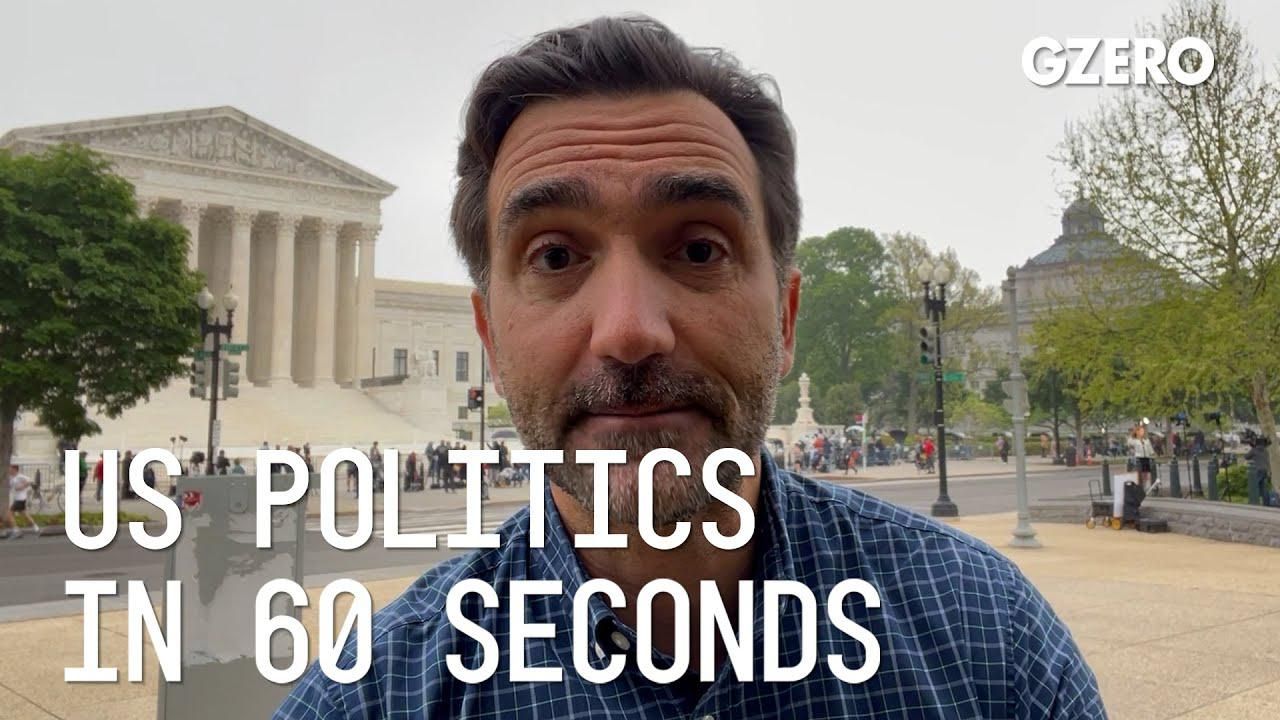US Politics In 60 Seconds
SCOTUS leak on abortion decision: impacts midterms and beyond

Roe v. Wade Decision Leaked: Not The Law Of the Land Yet | US Politics In :60 | GZERO Media

Jon Lieber, head of Eurasia Group's coverage of political and policy developments in Washington, discusses what the abortion ruling mean for US politics.
What does the abortion ruling mean for US politics?
I'm down here at the Supreme Court where word leaked out last night that the court has a draft opinion that likely has the majority of votes to overturn Roe v. Wade, which is the 50 year old precedent that prevents states from imposing draconian bans on abortion. Democratic states and Republican states have been preparing for this to happen. Republicans have been rushing as quick as they can to put in place new abortion bans, while Democrat states have been enshrining abortion protections in their law, in anticipation of this decision.
What's unusual is that the decision leaked out. It wasn't released through normal channels. So while everyone knows this is coming, it's not yet the law of the land. And there may still be changes to the draft opinion that could tweak it here or there, in order to attract probably the sixth vote of Chief Justice John Roberts.
Politically, the impacts of this are really unclear. It's a galvanizing issue on both sides. Republicans have a turnout advantage in the midterm elections. Democrats may be able to use this to their advantage, to get more pro-choice voters to show up. But on the other hand, that could cut the other way. Republicans could also galvanize their base by talking about the importance of enshrining this decision into law.
Legislatively, Democrats have almost no options. Their 50th senator, Joe Manchin from West Virginia says he's pro-life and you would require either changes to the filibuster rules or 60 votes overcome them, and that's simply not happening.
This is a major victory for the conservative movement who have worked since the time of Roe v. Wade to put enough judges on the court who had overturned the decision. And now you're going to see years and years of this being litigated at the state level, at the ballot box. And importantly, Democrats working to overturn the 6-3 conservative majority, and try to get a Democrat appointed majority back in the court, so they can undo this decision. This is likely to continue to be one of the defining issues in US politics for the foreseeable future.
In this Quick Take, Ian Bremmer addresses the killing of Alex Pretti at a protest in Minneapolis, calling it “a tipping point” in America’s increasingly volatile politics.
Who decides the boundaries for artificial intelligence, and how do governments ensure public trust? Speaking at the 2026 World Economic Forum in Davos, Arancha González Laya, Dean of the Paris School of International Affairs and former Foreign Minister of Spain, emphasized the importance of clear regulations to maintain trust in technology.
Will AI change the balance of power in the world? At the 2026 World Economic Forum in Davos, Ian Bremmer addresses how artificial intelligence could redefine global politics, human behavior, and societal stability.
Ian Bremmer sits down with Finland’s President Alexander Stubb and the IMF’s Kristalina Georgieva on the sidelines of the World Economic Forum to discuss President Trump’s Greenland threats, the state of the global economy, and the future of the transatlantic relationship.